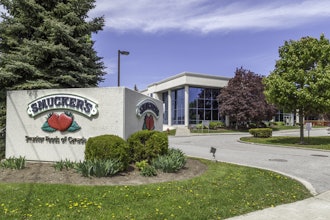Food and beverage manufacturers look to their ERP system to optimize business processes and position the company for growth. A considerable amount of time and energy is invested in the selection process. Once the decision has been made and the contract is signed, the real work begins to put those plans into action.
Many ERP implementations can run late and over budget, and some fail to deliver anticipated benefits. Most of the obstacles can be attributed to factors other than the technology itself. Leading those factors are leadership support, project planning and an often ignored element of early and regular communication.
Lead The Charge
Executive sponsorship is the most critical success factor. The implementation team needs involvement from leadership to ensure that the project is aligned with company goals and expectations, key decisions are being made in a timely manner, and resources are allocated appropriately. An engaged executive sponsor can help maintain focus on the implementation and address potential roadblocks to keep the project on track.
According to research by Panorama Consulting, almost 80 percent of ERP projects take longer than expected. The most common reasons for overage are organizational issues and competing priorities such as company expansion or peak season production. Some sponsors defer to a project manager once the project is underway; however, this is often when executive decisions are needed the most. Plan to review the project with the executive team on a regular cadence, as these touchpoints will also help maintain momentum throughout the project.
Stick To The Plan
Project management is another prerequisite for a successful implementation. According to Panorama, expanded project scope was the third-leading reason for ERP implementations exceeding the original project timeline. Expanded scope is also cited as one of the top five reasons for projects running over budget.
Establish a project plan with clear, measurable goals and objectives translated into milestones that are achievable within a realistic timeline. Appoint a cross-functional, cross-departmental team led by a dedicated project manager who reports regularly to the leadership team.
Adhering to a proven implementation methodology is also important, as it will minimize disruption at go-live. Research has found that over 60 percent of manufacturing software implementations create operational disruptions, and almost 50 percent reported that disruption lasts between one and two months.
Cutting corners, costs and time just to get the project done is likely to drive up long-term costs and risks. You wouldn’t introduce a new product without extensive testing, so don’t introduce new software without the same attention to detail. Fully testing the system ensures that it fits business practices, the data has been fully tested, the integrations have been tested and security roles and profiles are ready for go-live.
Communicate The “New Normal”
Change management is often overlooked, but is equally crucial to a successful implementation. The project should focus as much on the people impacted by the solutions as it does on the processes. After all, almost half of ERP implementations are designed to make employee jobs easier. Neglecting this aspect, or putting it off until late in the project, may result in organizational resistance to the new system.
Employees are accustomed to performing activities through a defined process in their daily routine, and any changes may not be easily accepted. The benefits an organization plans to realize from a new ERP system will not materialize until users have embraced and are productive on new applications and processes. Incorporate structured communications plan to help employees understand the benefits of the new workflows and keep them informed along the way.
Meet The Challenges Head On
Only about 40 percent of company surveyed considered their ERP implementation a success. Many organizations report the biggest obstacle to the success of their implementation was misalignment between project management and change management. For some companies, it may be helpful to bring in a consultant to handle project management and change management.
By understanding the reasons behind typical pitfalls, companies can build realistic plans for their ERP implementation. Engaged leadership, a well-defined project plan and a focus on change management will guide the way and help companies reap the full benefits of an ERP.
Jill Smith is Senior Director Aptean Ross ERP at Aptean.






















